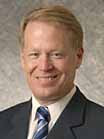At last night's informal Common Council meeting, Council president Claudia DeStefano reminded the aldermen that funds had been included in the 2017 budget for legal counsel for the Council. DeStefano said she had met with Andy Howard and invited comment from the aldermen about the possibility of appointing him as legal adviser to the Council. Alderman Rick Rector (First Ward) asked what Howard's current responsibilities were and was told by DeStefano that he was legal counsel to some other municipalities in Columbia County. Alderman John Friedman (Third Ward) asked, "Is Greenport one of them?" DeStefano told him no.
 |
| Andrew Howard |
The whole question of counsel for the Council has some history, as does Andy Howard's connection with it. The issue of the Common Council needing its own attorney first came up in 2006, when a new mayor (Dick Tracy) and several new aldermen took office. Prior to that, legislative initiatives tended to originate with the mayor, and the Council's role was basically to approve or deny those initiatives. In that situation, having a single city attorney, who served at the pleasure of the mayor, worked perfectly well. But in 2006, the Council had its own robust and diverse legislative agenda. Crafting legislation to carry out their initiatives required the advice of legal counsel. At the time, it was believed that a referendum was required to retain counsel for the Council. So, in November 2006, there was a referendum, and it failed.
 |
| Daniel Tuczinski |
The issue came up again at the beginning of 2015, when Mayor William Hallenbeck did not reappoint Dan Tuczinski as assistant city attorney but appointed Andy Howard in his place. At the time, Friedman, who then chaired the Legal Committee, told the mayor at a Council meeting, "You fired a qualified person for a political reason. . . . You fired Dan Tuczinski because you wanted to hire someone who worked in the county attorney's office." Hallenbeck, in an interview on WGXC, claimed that his positions were "not being represented properly" by Tuczinski and that Tuczinski was "accommodating" the Council's efforts. In January 2015, after considerable discussion, during which Hallenback maintained that having legal counsel for the Councill required a referendum because it diminished the power of the mayor, the Council passed a resolution to reallocate $15,000 to pay a legal adviser for the Common Council. [All members of the Council voted in support of the resolution except Robert Donahue (Fifth Ward), who voted no, and Abdus Miah (Second Ward), who abstained.] Although the city attorney Carl Whitbeck offered the opinion that having a separate legal adviser for the Common Counsel did not violate the city charter, Hallenbeck vetoed the resolution, on the basis that it did. Unfortunately, in February 2015, when the resolution to override the veto was presented to the Council, two key aldermen were absent, and Council president Don Moore decided not to call for a vote. As a consequence, the veto stood.
This year, the money is in the budget, the mayor and the city attorney seem to agree that having legal counsel for the Council is allowed by the charter, and all that remains is for the attorney who will counsel the Council to be determined.
COPYRIGHT 2017 CAROLE OSTERINK



Our legal staff's past practices might raise eyebrows today, though to be fair, nobody knew at the time what was actually taking place.
ReplyDeleteA few years ago, I FOILed the City to find documents relating to a major planning session for a Lead Agency's Environmental Impact Statement (EIS). The Lead Agency was our Common Council, and the proposed action was the LWRP.
Not only were no documents generated, but I also learned there were no members of the Lead Agency present at the meeting.
Aside from the loathsome planning outfit we hired to help with the waterfront program, there were only the mayor and the mayor's attorney present at this meeting in the mayor's office.
For those who don't know, the mayor should not have involved himself with the EIS. It was that type of meddling which contributed to the failure of the LWRP. The fact that one attorney served both branches of government further clouded an already cloudy situation.
I don't see the same set-up as a problem right now, but it was before and it will be again.